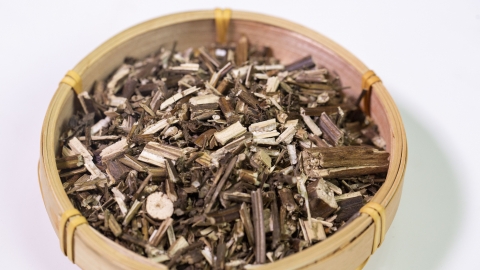Can perilla treat cough?
Generally speaking, if coughing is due to wind-cold, Perilla (Zi Su) can be effective in treating it. However, if the cough is due to wind-heat, Perilla will not have a therapeutic effect. If discomfort symptoms occur, it is recommended to seek timely medical treatment at a qualified hospital. Detailed analysis is as follows:
Patients with wind-cold cough often experience heavy coughing, shortness of breath, sore throat, thin and white phlegm, accompanied by nasal congestion, clear nasal discharge, headache, and body aches. Perilla is warm in nature and pungent in taste, affecting the lung and spleen meridians. Its warming properties can dispel cold pathogens from the body, while its pungent nature helps to expel external pathogens. It has functions of relieving exterior syndromes and dispersing cold, as well as regulating qi and harmonizing the stomach. After consuming Perilla, the volatile oils in Perilla can promote sweat gland secretion, inducing mild perspiration that helps expel invading wind-cold pathogens through sweat, thus alleviating symptoms such as chills, fever, nasal congestion, and runny nose.

Patients with wind-heat cough often exhibit severe coughing, coarse breathing, hoarse cough sounds, dry throat and sore throat, unsatisfactory phlegm expectoration, thick or yellow phlegm, often accompanied by yellow nasal discharge, thirst, headache, and fever associated with wind-heat exterior syndrome. Perilla is warm in nature, and patients with wind-heat cough already have internal heat pathogens. Consuming Perilla may further intensify internal heat, increasing heat pathogens and worsening lung heat, leading to no relief of cough symptoms and possibly exacerbating them, resulting in more frequent coughing and yellower, thicker phlegm. It may also trigger or worsen symptoms such as sore throat and fever, which is not conducive to recovery.
If cough symptoms persist or worsen, timely medical consultation is necessary to receive standardized treatment under a doctor's guidance, avoiding self-medication that may delay the condition. Additionally, it is important to rest adequately, maintain good indoor air circulation, drink plenty of water, follow a light diet, and avoid spicy, greasy, or irritating foods.






